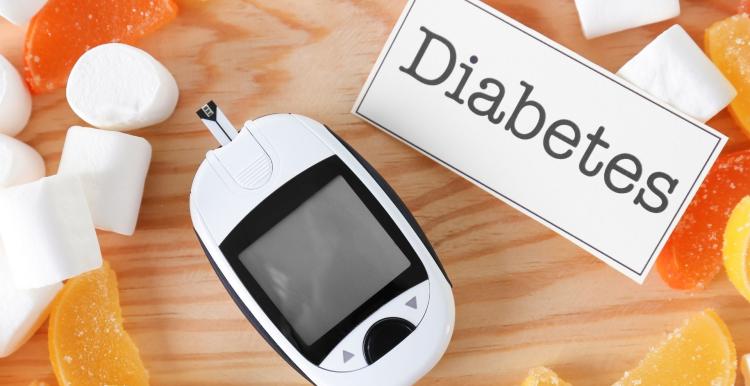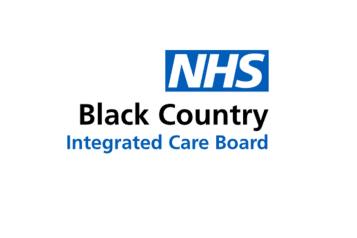Local people are being invited to come forward for a free health check during Diabetes Week (10 – 16 June) and check their risk of developing type 2 diabetes.
Diabetes is a condition that causes a person's blood sugar level to become too high. Type 1 diabetes is a rarer form of the condition, which is caused by genetic or environmental factors, and can’t be prevented. Those with type 1 diabetes require regular insulin injections for life to keep blood glucose levels under control.
However, type 2 diabetes is often linked to being overweight or inactive, or having a family history of type 2 diabetes, and the health implications can be serious and life changing. It is the leading cause of preventable sight loss in people of working age, as well as a major contributor to kidney disease, loss of limbs, increased risk of heart disease and stroke.
Some groups are at higher risk of type 2 diabetes including: men, people of South Asian or Black ethnicity, people who are overweight and people with a family history of type 2 diabetes. Black and South Asian people have a higher risk of getting type 2 diabetes after the age of 25, compared with those from a white background where risk increases after the age of 40.
From next week, a mobile testing van will be at a number of locations across the Black Country offering free health checks for local residents. The bus is a walk-in service so no appointment is required and will be available between 9am and 5pm (times may vary by location). People are advised to arrive no later than 4pm:
Tuesday 11 June
Black Country Family Practice, Neptune Health Park, Sedgley Rd, Tipton DY4 8PX.
Thursday 13 June
Bently Bridge Car Park, Main Block (towards Cineworld). Wolverhampton, WV1 1BP.
Friday 14 June
Tesco Car Park, Marston Road, Wolverhampton, WV2 4NJ.
Wednesday 19 June
Dudley Market Place, Dudley, DY1 1JP.
Those attending can simply have a conversation about their risk of type 2 diabetes with a clinician or have a finger prick blood test for early signs of diabetes. Blood pressure checks, body mass index (BMI) checks and cholesterol testing is also available, all of which can be early indicators of developing type 2 diabetes. Depending on the results of your tests or your risk based on your conversation, you can be signposted to appropriate sources of help or to a healthcare professional.
Dr Ananta Dave, Chief Medical Officer for the NHS Black Country Integrated Care Board, said: “It's really important for type 2 diabetes to be diagnosed as early as possible because it will get progressively worse if left untreated. Early treatment also reduces your risk of other health problems.
“Type 2 diabetes can be a very serious condition but there are lots of things you can do to reduce your risk of developing it such as achieving a healthy weight, getting more physically active and eating healthy food.
“For anyone who is looking to find out more information about type 2 diabetes or those who may be concerned they are at risk, please do pop down to the mobile testing van – it will be well worth a trip.”
The first step to preventing type 2 diabetes is finding out what your risk is. The Know Your Risk tool from Diabetes UK can also help you find out your risk. You enter information including your ethnicity, age, height, weight and waist measurement, and it will give you an assessment of your personal risk of developing type 2 diabetes and advice about next steps.
However, type 2 diabetes is often linked to being overweight or inactive, or having a family history of type 2 diabetes, and the health implications can be serious and life changing. It is the leading cause of preventable sight loss in people of working age, as well as a major contributor to kidney disease, loss of limbs, increased risk of heart disease and stroke.
Some groups are at higher risk of type 2 diabetes including: men, people of South Asian or Black ethnicity, people who are overweight and people with a family history of type 2 diabetes. Black and South Asian people have a higher risk of getting type 2 diabetes after the age of 25, compared with those from a white background where risk increases after the age of 40.
From next week, a mobile testing van will be at a number of locations across the Black Country offering free health checks for local residents. The bus is a walk-in service so no appointment is required and will be available between 9am and 5pm (times may vary by location). People are advised to arrive no later than 4pm:
Tuesday 11 June
Black Country Family Practice, Neptune Health Park, Sedgley Rd, Tipton DY4 8PX.
Thursday 13 June
Bently Bridge Car Park, Main Block (towards Cineworld). Wolverhampton, WV1 1BP.
Friday 14 June
Tesco Car Park, Marston Road, Wolverhampton, WV2 4NJ.
Wednesday 19 June
Dudley Market Place, Dudley, DY1 1JP.
Those attending can simply have a conversation about their risk of type 2 diabetes with a clinician or have a finger prick blood test for early signs of diabetes. Blood pressure checks, body mass index (BMI) checks and cholesterol testing is also available, all of which can be early indicators of developing type 2 diabetes. Depending on the results of your tests or your risk based on your conversation, you can be signposted to appropriate sources of help or to a healthcare professional.
Dr Ananta Dave, Chief Medical Officer for the NHS Black Country Integrated Care Board, said: “It's really important for type 2 diabetes to be diagnosed as early as possible because it will get progressively worse if left untreated. Early treatment also reduces your risk of other health problems.
“Type 2 diabetes can be a very serious condition but there are lots of things you can do to reduce your risk of developing it such as achieving a healthy weight, getting more physically active and eating healthy food.
“For anyone who is looking to find out more information about type 2 diabetes or those who may be concerned they are at risk, please do pop down to the mobile testing van – it will be well worth a trip.”
The first step to preventing type 2 diabetes is finding out what your risk is. The Know Your Risk tool from Diabetes UK can also help you find out your risk. You enter information including your ethnicity, age, height, weight and waist measurement, and it will give you an assessment of your personal risk of developing type 2 diabetes and advice about next steps.

For those living with type 2 diabetes, the Healthier You: NHS Diabetes Prevention Programme can also help you make simple changes to your diet, your physical activity levels, and your weight management.
For more information about the programme, visit the Healthier You website. Click Here


